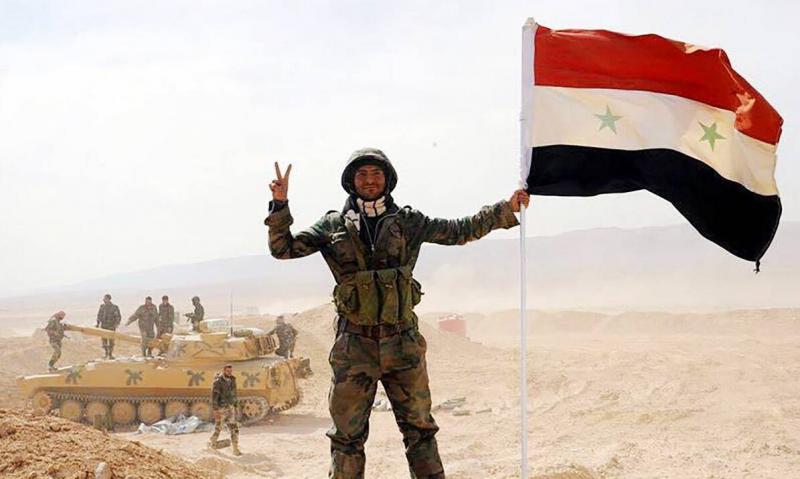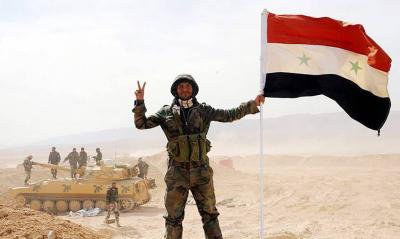Is Syria prepared to support the Lebanese Hezbollah if Israel expands its war on Gaza to include Lebanon after threatening it with a "hot summer"? Will Syria replicate its actions during the July 2006 war by providing military, logistical, and financial support to Hezbollah, or will it adopt a "neutral" stance as it did regarding the Gaza conflict? Will Damascus respond to "enormous Iranian pressures" by opening a front in the Golan Heights and engaging in the war under the framework of "uniting the fronts" led by Tehran, or will it maintain its policy of distancing itself? The search for answers to these questions has become urgent amid heightened anticipation of what may happen in southern Lebanon following recent escalations in cross-border shelling without clear indicators in sight.
At the same time, attention is focused on Damascus, which is engrossed in its own efforts to resolve deep crises and break its isolation. Observers and political experts believe that Syria "will offer support, but it won’t be at the level" of the support provided in 2006, as it is "currently economically and militarily weakened." However, they note that Damascus's position "remains unclear so far."
Israel's Push for War
"Chances for a settlement in southern Lebanon are decreasing daily," said one analyst in Damascus, who preferred not to be named, referencing an assessment by the Israeli Alma Research Center, presented by Gil Berry during a conference discussing security challenges on Israel's northern front, published in Yedioth Ahronoth on May 10. The analyst continued: "Berry stated that there is a push for Israel to launch a war against Hezbollah in southern Lebanon before Hezbollah surprises it, particularly since he asserted that any diplomatic agreement would only buy time until Hezbollah ultimately invades Israel, which is expected no later than the end of 2026." He added, "Israel currently sees an opportunity to strike Hezbollah; because Hamas is engulfed in the Gaza war, Syria is weak, and Russia is occupied with its war in Ukraine, while America is present on the ground in Syria."
Damascus's Position
Damascus, often described as the "tip of the spear" in what is termed the "Axis of Resistance," has not clearly announced what support it can offer to Hezbollah. Its stance has been limited to what President Bashar al-Assad stated on May 4 during the expanded meeting of the central committee of the Baath Party, that "everything we can offer within our capabilities to the Palestinians or any resistance against the Zionist entity, we will do without hesitation."
Considering the evolution of relationships among the parties in the "Axis of Resistance," what Assad said implies that Syria can only support Hezbollah if Israel were to wage war on Lebanon. However, this support would not match the level provided in 2006 during the 34-day war, when the Syrian army was fully prepared, and the regime opened its arms depots and routes between Syria and Lebanon for arms transfer.
A military analyst following the field situation in Syria explained: "After thousands of Hezbollah fighters spread across Syria since 2011, the idea of turning the western Qalamoun in the Damascus countryside into a regional backer for Hezbollah gradually crystallized. For Hezbollah, the experience of the 2006 war posed two dilemmas: the first was demographic, with the displacement of residents from southern Lebanon, and the second was logistical. The first dilemma was addressed by facilitating the reception of hundreds of Lebanese refugees in Syria by the Syrian regime, whereas today, Lebanon is hosting thousands of Syrian refugees. The logistical dilemma stemmed from a lack of strategic depth, which was addressed through a solid alliance with the Syrian regime."
It is noted that "the Syrian army is a strategic ally of Hezbollah, respects its fighters, and will therefore support it, but the problem lies in the costs. In 2006, the economic, financial, and military situation was better, and the regime was decisive. Currently, however, it has nothing and is managing with assistance and remittances from abroad." The source clarified that there is a significant difference between Damascus's stance toward Hezbollah and its stance toward Hamas, which the Syrian regime believes betrayed it from the first year of the war by siding with the opposition. This point was not salvaged by Iranian and Hezbollah mediation with Damascus, nor the visit of its leaders to the Syrian capital last year.
The Dilemma of "Uniting the Fronts"
While Damascus has distanced itself from the "Uniting the Fronts" axis that it has engaged in for 40 years concerning Gaza and has refused to open a front in the occupied Golan despite Iranian pressures, its position remains unclear regarding "uniting the fronts" with Lebanon. If Iran has largely failed to deal with Damascus regarding the Gaza war and has demanded repayment of debts amounting to $50 billion without succeeding in opening a front in the Golan, how will the situation be with the southern Lebanon front, especially since Hezbollah is essential for both countries?
It is no secret today that the arrival of gasoline shipments has been delayed by 15 days, while the streets of Homs are devoid of cars, and traffic has significantly decreased in the streets of Damascus.
Many see the "matter as very complicated." If the regime engages in the war, Israel will strike the Syrian army this time, causing further damage and destruction to already vulnerable infrastructure; most ongoing Israeli strikes in Syria currently target Iranian positions, its militias, and leaders. If the regime gets embroiled in the war, the Syrian army would find itself caught between Iranian pressures and Israeli strikes.
Moreover, Iran is not the only international actor on the ground in Syria; there are the United States, Turkey, and Russia, which enabled the Syrian army to regain vast areas of the country, but that was also before Russia's engagement in the Ukrainian war.
With the ongoing war in Gaza and the escalating exchange of shelling between Hezbollah and Israel, Damascus hosted Czech Foreign Minister Radek Šmerda at the end of April, bearing a European message regarding the French paper for calming tensions in southern Lebanon, according to information from Asharq Al-Awsat, without any indicators suggesting the possibility of easing European and American sanctions on the Syrian regime, as was hoped; this places Damascus under further military and financial pressures and narrow, difficult choices.




